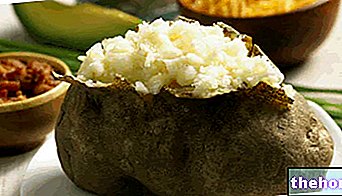Why are they used
The rationale for using amino acids to lose weight - whether natural or synthetic - lies essentially in their ability to
preserve muscle mass from catabolic phenomena induced by calorie restriction.
In practice, when we eat less than we should, the body draws energy not only by drawing on fat and carbohydrate reserves, but also by breaking down muscle proteins to use the amino acids that compose them for energy purposes.

Do they work?
It is never superfluous to remember that - contrary to what is often proposed by the media, with even illegal forms of advertising - there are no miraculous amino acids for weight loss. Each single amino acid, in fact, performs specific functions within the organism and it is quite naïve to hope that taking it in larger quantities can somehow enhance the functions in which it participates, as these are influenced by many other factors. For example, a specific supplementation with tyrosine - unless known deficiencies of this amino acid or phenylalanine - certainly cannot increase the synthesis of thyroid hormones, although tyrosine directly participates in this process.
A protein or amino acid supplement, as mentioned, can still help to preserve muscle mass and support metabolism; this is particularly important for people who have a particularly active lifestyle and / or follow a diet low in protein foods, such as meat, fish, eggs, legumes and cheeses. Even the strict vegetarian (or vegan) may need to supplement their diet with natural amino acids, in order to fill any protein deficiencies associated with this particular diet.
Quality
Generally, the amino acids used in the various supplements can have an "animal origin (hair and carcasses) or vegetable (from corn and cassava). The former are generally of Chinese origin (obviously they are purified and are subject to health checks, so there are no particular risks for the consumer), while the latter are generally of Japanese origin (Ajinomoto and Kyowa brands).
Important recommendations
As explained in the article, before resorting to the use of natural amino acids to lose weight, it is essential to evaluate on the one hand the caloric-protein intake of one's diet, and on the other the real requirement of amino acids and proteins. In order for the supplementation to determine the achievement of some real benefit, limiting the potential side effects, it is therefore necessary to establish the amount to be supplemented, correlating it to the type of physical activity carried out and to the physiological, nutritional and dietary state of the subject. In general, however. , natural amino acids are recommended at dosages between 5 and 20 grams per day.



























